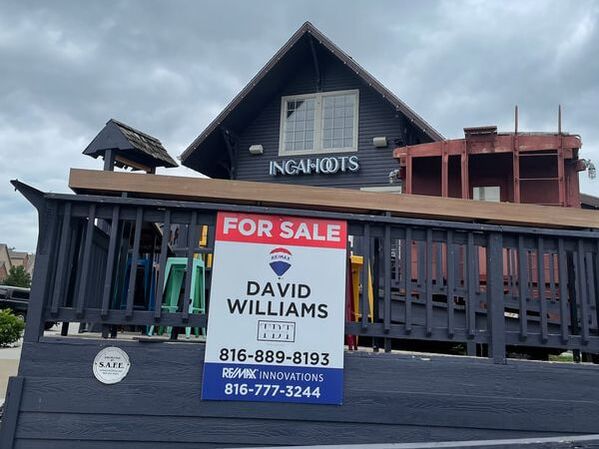The Burke Team Real Estate
|
Real estate is one of the most coveted forms of wealth creation, but is it the right investment for you? More specifically, is commercial real estate, the better way to go? Billionaire Andrew Carnegie once said that 90% of millionaires got their wealth by investing in real estate. So when we look at the two options of Commercial vs Residential, there are two key points to consider: profitability and stability.
Let's first look at the profitability side, and how the different properties are valued. With residential real estate, the purchase price and rents are dictated by the market. The market for any given area will set and control the value you can get from your investment. There is very little flexibility. Often referred to as the “Comparative Market Approach”, your home’s value will be dictated on the short term historical data collected from the sales and rentals of your neighbor’s properties. The actions of your neighbors will have a higher influence on your property values, than your own actions. With commercial property however, you have more control over the value. Rather than solely relying on a “Comparative market Approach”, commercial real estate will also utilize an “Income Capitalization Approach”. Meaning, if you can find a way to increase rents collected for a property, you can essentially increase that properties value. This places a larger influence in the properties value, on your own actions. As for stability, commercial real estate tends to offer a larger variety of lease types and longer durations of occupancy. For example, according to national research conducted by ResidentRented, the average length-of-stay for a U.S. residential renter is 27.5 months (2 years 3.5 months). While sources like, Business News Daily, suggest the average lease term in commercial real estate spans between 3-5 years. What is Commercial Real Estate, Commercial real estate is property utilized for business purposes. Where businesses occupy the space as opposed to residential tenants (in most cases). Different Types of Commercial Real Estate There are several different types of commercial real estate, but for the purpose of this article, there are 4 I would like to highlight: 1. Retail Real estate is occupied for the purpose of buying and/or selling tangible personal property or services to the general public. Examples would be shopping spaces, restaurants, grocery stores, pharmacies ect. These properties can be single unit/stand-alone or Multi-unit, generally with a primary or anchor tenant. 2. Office Real estate is occupied for the purpose of conducting office operations and clerical work. There are 3 tier classifications of offices (A, B, and C), all of which designate different levels of location, value and use. 3. Industrial Real estate defined as, land and buildings whose uses accommodate industrial activities. Examples would include production, manufacturing, research, distribution, storage, warehousing, ect. 4. Multifamily Homes with more than one occupiable unit. Multifamily properties can range from duplexes to high-rise apartments or condominium units, and everything in between. Often not considered commercial property, until there is a minimum of four units in one building. These four areas of commercial real estate give a new investor plenty of options to get started. The type of properties you invest in are going to be subject to your market and your own personal passions. As an example, if there is a need for office space in your market but you have zero passion for the sector, you are less likely to find success without existing and proven processes already in place. The ideal scenario would be to find a niche you are excited about first, learn and research as much as you can about that niche and then find where it is needed. Your go-to team, to start your investing journey Investing in commercial real estate does not have to be an intimidating and complicated feat. Having the right team in your corner can make all of the difference. I recommend starting your journey with four pieces in place. 1. Tax Professional: Investing in real estate in general will have many different tax implications. Having a tax professional that understands the complexities and advantages, can mean the difference in unforeseen tax liabilities and exponential profits and growth. 2. Lender: Unless you intend to purchase everything with cash, you will likely need a lending expert on your side. This is the side of real estate investing that is overwhelming for most. A lot of journeys end before they even begin. It is imperative to have the confidence to pursue the knowledge and expertise of a lending professional. 3. Financial Advisor: It will be likely that you will have to reach into your own pocket, to get a deal done. It is rare that a property can be purchased with 100% financing, so having someone who can advise you on how to properly cover necessary expenses without risking everything, is paramount. 4. Commercial Real Estate Professional: Having the right Commercial Real Estate Professional who is well versed in both ROI and evaluating commercial properties can save you both time and money. There will be several functions and roles that they will play, with the most important being market research and negotiation. Having someone with their finger on the pulse of the market, and armed with your best interest in mind, can create an invaluable and dynamic relationship. This person will likely be able to produce referrals for the other 3 items listed above, if not already in place. When you are armed with the information, the passion and the right team behind you, the intimidation factor can just melt away. The only thing left to do, is decide - is commercial real estate the missing piece in your portfolio?
0 Comments
Leave a Reply. |
AuthorDavid Williams is the Burke Team's Commercial Real Estate Specialist. He is a decorated sales professional who puts an emphasis on building Client Relations. With experience in commercial buildings, cash flow multi-family, and vacant land, David approaches his valuations from a profit-minded standpoint with his unique set of skills. He is heavily invested in commercial focused resources to better serve his investment clients. ArchivesCategories |
Proudly powered by Weebly


 RSS Feed
RSS Feed